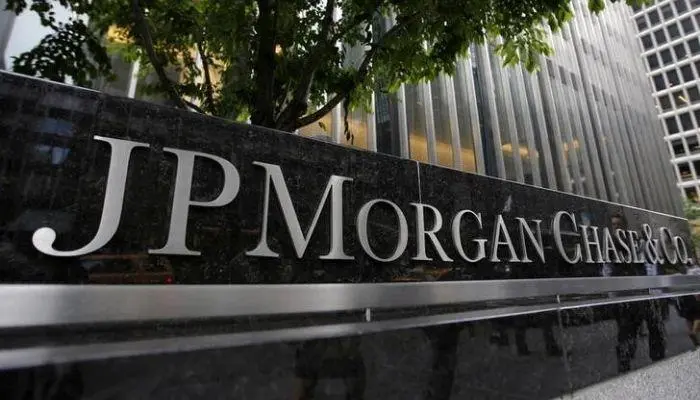
JP Morgan says Nigeria’s net FX reserves fell to $3.7bn at end of 2022

An American multinational financial services firm JP Morgan has estimated Nigeria’s FX Reserve as at the end of last year to be around $3.7 billion much lower than reported figures of about $30 billion.
This contained in its August 17 report on Nigeria titled “Nigeria: Reform pause rather than fatigue”. The bank noted that the lower-than-reported FX reserve is the result of larger currency swaps and borrowings against the FX reserve.

“Based on partial information from the audited financial accounts, we estimate that CBN’s net FX reserves were around US$3.7bn at the end of last year, from US$14.0bn at the end-2021,” JP Morgan said in its new report.
“FX forwards ($6.84bn), securities lending ($5.5bn) and currency swaps ($21.3bn); and estimating currency swaps by backing out FX forwards and outstanding OTC Futures balances from an overall aggregate published in the financial accounts,” the report added.
Assumptions used to arrive at the $3.7bn FX reserve are :
“An addition of US$5.0bn in IMF Special Drawing Rights (SDR) to external reserves to arrive at total gross FX reserves of US$37.8bn, broadly in line with the 30-day moving average of US$37.08bn previously published on the central bank’s website.”
“adjusting the gross external reserves with three key FX liability lines that include FX forwards (US$6.84bn), securities lending (US$5.5bn) and currency swaps (US$21.3bn); and”
“Estimating currency swaps by backing out FX forwards and outstanding OTC Futures balances from an overall aggregate published in the financial accounts.”
The report however noted that the CBN still can withstand the pressure accompanying the low FX reserve especially, as profit from swap arrangements between the CBN and commercial banks, the rates will continue to increase.
The NNPCL also had to borrow $3 billion from the Afrexim bank to shore up the nation’s FX reserve is expected to ease liquidity in the exchange market.
JP Morgan’s report said it expected that headline inflation will still remain elevated, particularly due to higher food costs.
“We believe July’s inflation print is early evidence of the impact of the fiscal and FX reforms which are likely to continue pushing headline inflation higher over the coming months,” JP Morgan said in its report.
“Higher parallel market rates in recent weeks are also likely to have an impact on August’s inflation reading and will be most notable in higher food and core prices. The core inflation measure (excluding food and energy costs) rose by 20.5% in July, from 20.1% recorded in June. We now see headline inflation rising towards 28%oya by year-end.”



